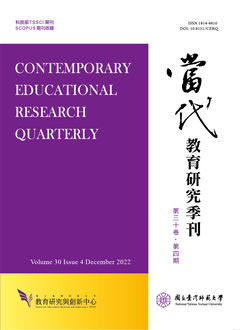

教育哲學重要的功能之一是對教育目的做廣泛而深入的思考。「合理性」一直被視為是現代主義的核心教育理想。隨著後現代學術氛圍的形成,一股反理性或修正理性的風潮也成為教育哲學爭論的核心。N. Burbules吸納了後現代的想法,提出「合情理」做為教育目的之核心概念;H. Siegel則堅持「合理性」,力拒知識的相對主義。Burbules從德行觀、脈絡觀、關聯論等企圖說明,「合情理」較為周延;Siegel則認為合情理之概念若淪為受脈絡影響的相對主義,將會破壞了理性本身,他堅持合理性可以在後現代的訴求中,得到知識上的證成,並達成後現代的道德訴求。筆者從「教育論證」的脈絡⎯⎯即從具體的教育實踐脈絡中,去反思、驗證哲學主張的適用性,初步認為Burbules合情理的觀點較具合理性。不過,弔詭的是,筆者卻也從臺灣教育近年的政經脈絡中,體察出Siegel的合理性觀點,其實比較適合臺灣現階段所需。合理性、合情理的相互搓揉⎯⎯理性概念的重構,似乎仍是未來思考教育目的不可避免的挑戰。
<div> One of the functions of philosophy of education is to investigate the aims of education. Rationality has been the core concept of educational ideals since the era of Enlightenment. However, many scholars rejected or revised the concept of rationality in the postmodern age. H. Siegel defended rationality as an aim of education by insisting the certainty of knowledge and refuting relativism. N. Burbules, on the other hand, proposed reasonableness to replace rationality as the educational aim by absorbing the spirit derived from postmodernity. The purpose of this article is to discuss the arguments about rationality in education between Siegel and Burbules. The author concludes with two implication. On the one hand, based upon the context of educational argument, the author thinks the reasonableness proposed by Burbules was more comprehensive than rationality as proposed by Sigel as an educational aim. However, on the other hand, the author agrees that the rationality argued by Siegel, in terms of better reasons for choice, is more suitable in the political, economic, and educational contexts in Taiwan. The rationality of reasonableness is still an important issue to investigate further in Taiwan.</div>

本著作係採用創用 CC 姓名標示-非商業性 3.0 台灣 授權條款授權.
本刊國立台灣師範大學教育研究與創新中心
106台北市和平東路一段162號 | 電話: 02-7749-3670 | E-mail: cerecerq@gmail.com
教創中心 | 師大 | 電子報 | 線上投審系統
本刊由國家科學及技術委員會人文社會科學研究中心補助經費
© 2014 CERI-NTNU
